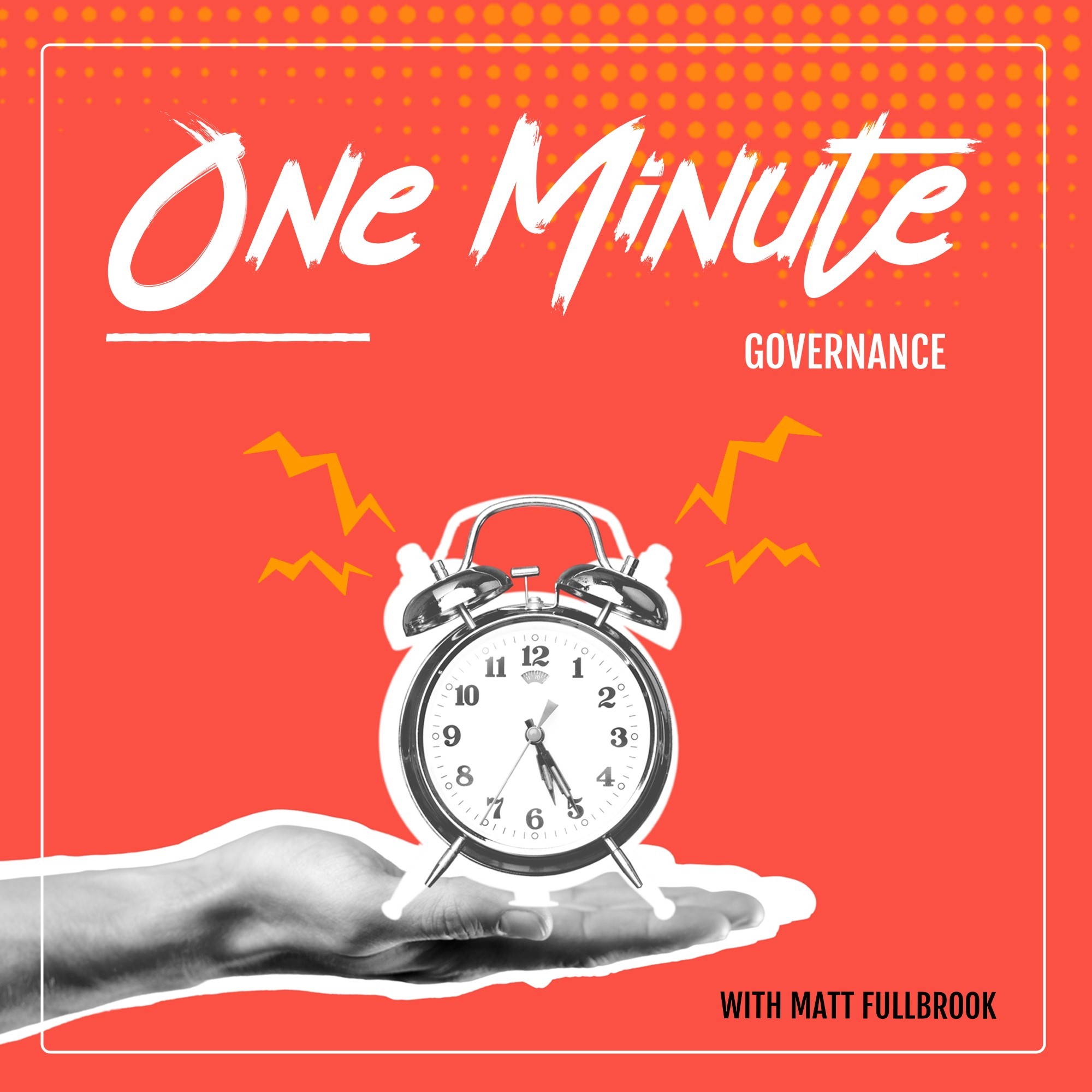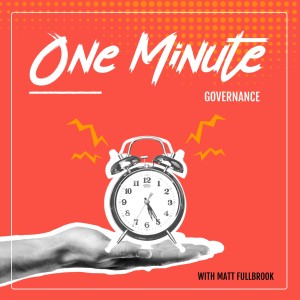
139.3K
Downloads
271
Episodes
Season 5 is live! New episodes every Monday and Thursday. This season, we’re exploring questions that directors need to *answer*. Are you a director, senior executive, investor, or someone who’s just curious about corporate governance? Tune in for insights about how things work inside and outside the boardroom, based on 20 years of experience and interactions with thousands of directors from around the world. Each episode lasts about one minute and will provide you with questions to ask yourself, your board and your management team, designed to optimize the way your organization makes decisions. Matt Fullbrook is a corporate governance researcher, educator and advisor located in Toronto.
Episodes

Thursday Jul 11, 2024
206. What does board effectiveness look like on a normal day? (Question #4)
Thursday Jul 11, 2024
Thursday Jul 11, 2024
This season, every episode of OMG focuses on a question that directors really need to answer.
OMG is written, produced, narrated and scored by Matt Fullbrook.
TRANSCRIPT:
Question #4: What does board effectiveness look like on a normal day? We – and by “we” I mean people who talk about corporate governance – have a tendency to talk about the impact of boards through examples of massive failure. Whether it’s Enron or Boeing or Wells Fargo or Theranos or the Challenger space shuttle explosion, we feel compelled to highlight all the ways things might go really wrong, but then we forget one tiny important thing: most boards aren’t in crisis most of the time. So, what does it mean to show up to a regular old board meeting and do a great job? It’s obviously really important to acknowledge how bad things can get, how important the role of the board can be in navigating potential catastrophes, and why it’s helpful to have some anxiety about how things might go wrong. But I think we can all agree that a board’s job is way more than catastrophe avoidance. So, when we show up for the next board meeting, what might great look like? Maybe we don’t even have any consequential decisions to make. Maybe we have every reason to believe that our organization’s future likely to be very bright. And maybe we’ve already done all the work we can do to acknowledge and manage potential catastrophes. So, when a normal meeting wraps up, what would cause us to look back and say “holy smokes! The board absolutely killed it today!” Sure, for some people, it might involve imagining new ways that things might go wrong so that we can be prepared for the worst. For other people it might involve dreaming about how to get even better. But being specific helps. What’s the right tone? What are the right conversations? What would it take to increase the probability that everyone is engaged and participating? How can YOU, individually, be as useful as possible? But if we don’t make an effort to describe board effectiveness under normal circumstances, we’re not likely to get it done.

No comments yet. Be the first to say something!